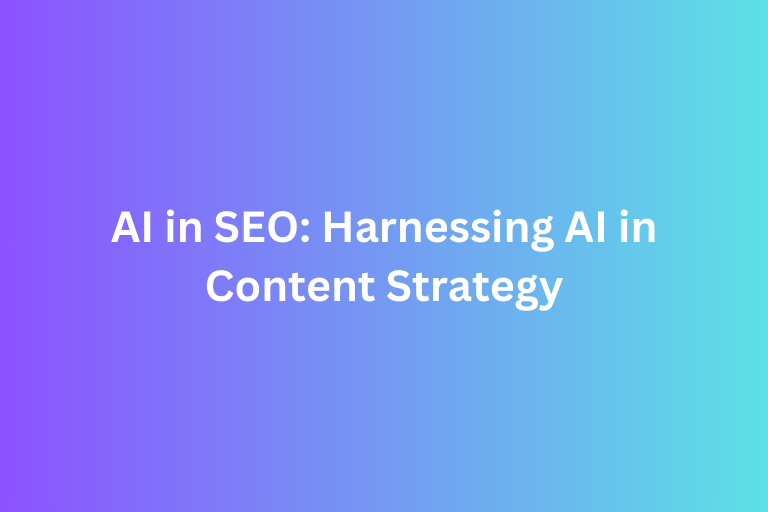Website crawling is a fundamental process in Search Engine Optimization (SEO) that helps search engines understand and index the content of your website. Crawlers, or bots, scan your site’s pages, gather information, and use that data to determine how to rank your pages in search engine results. But beyond simply getting indexed, website crawl results offer deeper insights into your website’s SEO health, performance, and optimization opportunities.
Learn more: How Does Website Crawling Work and What It Means For Us?
Let’s explore what crawl results, such as crawl errors, duplicate content, and 301 redirects, mean after a website audit has been completed, and how they can guide your SEO strategy.
1. Crawl Errors
Crawl errors are one of the most important elements of crawl results. They occur when a search engine bot encounters issues while trying to access a page on your website. These errors can range from broken links to server issues and can significantly hinder the effectiveness of your SEO efforts.
Common types of crawl errors:
- 404 Errors (Page Not Found): A dead-end page that doesn't exist anymore.
- 403 Errors (Forbidden): Pages that are restricted or blocked for bots.
- 500 Errors (Server Issues): Internal server errors that prevent pages from being loaded.
When crawl errors are found, search engines can't index those pages. This can lead to lost traffic and decreased visibility in search results. Addressing these errors promptly by either redirecting, fixing, or removing broken pages ensures that search engines can crawl and index your site efficiently.
2. Page Speed Insight
Website crawl results also provide important insights into how quickly search engines can access your pages. Slow page loading times can impact both user experience and your rankings on search engines. Crawl results that show long loading times might indicate that your site is bloated with unnecessary resources, such as large images or excessive JavaScript.
What it means for SEO:
- Long Load Times = Poor SEO Performance: Search engines prioritize fast-loading websites in their rankings, and user experience is heavily impacted by slow load times.
- Improvement Needed: If crawl results highlight slow loading times, optimization of images, code, and server performance is crucial for both technical SEO and user experience.
3. Duplicate Content
Duplicate content issues can confuse search engines and dilute the SEO value of your pages. Crawl results may reveal instances of duplicate content, where identical or very similar content appears on different URLs. This can occur due to URL parameters, session IDs, or content management system (CMS) issues.
Why it matters for SEO:
- Content Cannibalization: If multiple pages contain the same content, search engines may struggle to decide which one to rank. This can lead to lower rankings and reduced visibility.
- Canonicalization: Crawl results pointing out duplicate content should prompt you to use canonical tags to indicate the preferred version of a page.
4. Site Structure and Internal Linking Insights
The way your website is structured plays a crucial role in how effectively search engines crawl and index your content. Crawl results can provide insight into how easily bots navigate through your website, and identify any structural issues such as orphaned pages (pages with no internal links pointing to them).
What you can learn from crawl results:
- Internal Linking Problems: If crawl results show that some pages are inaccessible due to poor internal linking, this means important content may not be getting indexed.
- Silo Structure: Crawl results help assess whether your content is well-organized in a way that benefits search engine understanding. A good internal linking structure makes it easier for search engines to crawl and understand the hierarchy of your website.
Learn more: Beginner's Guide On How To Create Website Structure
5. Mobile Usability: Mobile-First Indexing Concerns
With Google’s mobile-first indexing, your website must be optimized for mobile devices. Crawl results will often flag issues related to mobile usability, such as poor mobile rendering, broken elements, or slow load times on mobile.
Why mobile optimization is crucial:
- Mobile Search Growth: More users are accessing websites via mobile devices than ever before, and Google prioritizes mobile-friendly sites in rankings.
- Crawl Results for Mobile: Issues detected during mobile crawling should be resolved to ensure that search engines treat your mobile version as the primary version of your site.
6. Blocked Resources: Hindering Crawling and Indexing
Website crawl results can also indicate resources that are being blocked, such as JavaScript, CSS, and images. While it’s common to block certain administrative pages or low-value content, blocking resources that are essential for rendering your website can prevent search engines from properly understanding and indexing your content.
What happens when resources are blocked:
- Incomplete Crawls: If key elements of a page are blocked, search engines might not fully comprehend the content and structure of the page, potentially affecting rankings.
- Ensure Unblocked Critical Resources: It’s important to review your robots.txt file or meta tags and ensure that important resources (like JavaScript and CSS) are accessible to crawlers.
7. Orphan Pages
Crawl results can show if any pages on your website are “orphaned,” meaning they don’t have any internal links pointing to them. These pages can’t be discovered easily by search engines or users and therefore may not get indexed or ranked.
Impact on SEO:
- Invisible Pages: Orphan pages can contain valuable content, but if they’re not linked to from other pages, they won’t be crawled and indexed.
- Fixing Orphaned Pages: Crawl results should prompt you to add internal links to these pages or re-evaluate their value if they should remain hidden.
8. 301 and 302 Redirects
Redirects are commonly used to send users and search engines from one page to another, but not all redirects are created equal. Crawl results will highlight both 301 redirects (permanent) and 302 redirects (temporary), helping you ensure that your website’s redirection structure is set up correctly.
What redirects indicate:
- 301 Redirects: Used for pages that have permanently moved. These are generally fine, but too many redirects can slow down your site’s crawlability.
- 302 Redirects: Should only be used temporarily. If used incorrectly, they can confuse search engines and hinder indexing.
9. Site Depth and Crawl Budget
Crawl results also provide insight into the depth of your website. Crawl depth refers to the number of clicks it takes for a search engine to reach a particular page. A deeper crawl depth can negatively impact your SEO, as search engines may prioritize shallow pages and neglect deeper ones.
- If your site has many deep pages that are critical to SEO, consider optimizing your internal linking and site structure to ensure they are easily accessible to crawlers.
Conclusion
Website crawl results offer vital insights into the technical health, content quality, and SEO performance of your site. By regularly monitoring crawl results closely, it can improve overall SEO performance, enhance user experience, and maximize visibility on search engines.
Understanding what crawl results indicate helps you fine-tune your SEO strategy, making your website more search-engine friendly and more likely to improve further.
Improve your website performance with FoxAdvert!
If you are looking forward on how to improve your website performance, our professional team of SEO experts at FoxAdvert can help you. Contact us today to start your journey 😊











